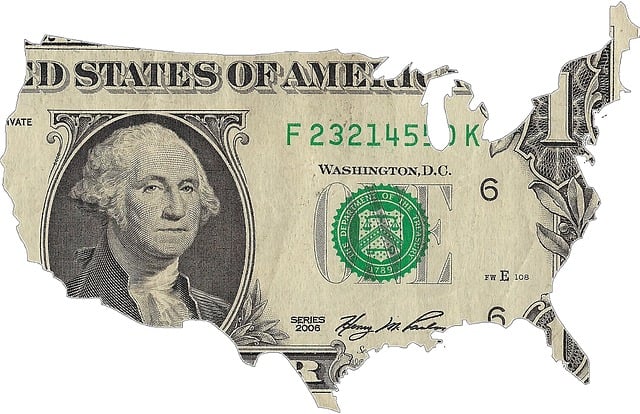Share This Article:

Sarasota, FL (WorkersCompensation.com) -- Raising the minimum wage is good for workers, business and the economy, according to Ben Zipperer, an economist at the Economic Policy Institute (EPI). Zipperer said boosting the national minimum wage is long overdue.
“Workers today who are paid the federal minimum wage of $7.25 an hour are, after adjusting for inflation, paid 29 percent less than their counterparts 50 years ago,’’ said Zipperer.
Millions of workers nationwide are lining up for a pay hike this year, with half of the U.S. states planning to boost their minimum wage in 2024. The increases boost the baseline pay to at least $16 an hour in three states: California, New York and Washington. In 22 states, the new minimum wages took effect January 1. However, Nevada and Oregon’s new rates will go into effect on July 1, while Florida’s minimum wage will increase on September 30.
By contrast, workers in 20 states will still be subject to the federal minimum wage, which has stood at $7.25 an hour since 2009, when it was last increased.
In particular, hiking the minimum wage helps female workers, according to Zipperer. Almost one million workers are single women. In fact, of the 11.8 million workers who will receive a pay increase as a result of a higher minimum wage, 58 percent would be women, simply because they earn lower wages than men. “As a result, a minimum wage increase would help reduce the overall pay gap between men and women,’’ said Zipperer of the EPI, a Washington, D.C. nonprofit, nonpartisan think tank that believes every working person deserves a good job with fair pay, affordable health care and retirement security.
By 2024, in areas all across the United States, even a single adult with no children will be needing to earn more than $15 an hour on a full-time, full-year basis in order to achieve a modest but adequate lifestyle, said Zipperer.
But Robert Strauss, a political economist at Carnegie Mellon University’s Heinz College, points out that implementing a higher minimum wage passes costs onto the consumer, results in job losses and makes companies less competitive.
For example, Adda Coffee and Tea House closed their four store locations this month after employees asked for higher wages and demanded company owners recognize their union. The Pittsburgh coffee chain said their “monetary resources were depleted.’’
Strauss further pointed out that raising the minimum wage hurts low-skilled workers in two ways. “First there are fewer jobs available. Second, with a larger pool of applicants, competition is stiffer. Lower-skilled workers have difficulty getting those jobs that are crucial to economic well-being,’’ Strauss said.
However, Zipperer stresses that employer mandates can increase the prevalence of good jobs.
“By altering the mix of firms and reallocating workers across them, the minimum wage create or at least shifts the composition of jobs to those that are more productive and pay higher wages,’’ said Zipperer.
Still, many small businesses and restaurants, in particular, are wary of increased minimum wages. A Los Angeles restaurant has come under fire after a prominent podcaster took issue with an unfamiliar surcharge on his guest check: an extra 4 percent fee automatically added to the bill to help fund workers’ health insurance.
While Alimento, the restaurant in the Silver Lake neighborhood of Los Angeles was singled out for the move, eateries across the U.S. are increasingly upcharging diners beyond the stated food prices on menus. Nearly one in six restaurants said they are adding fees or surcharges to checks to combat higher costs, according to a December survey by the National Restaurant Association.
“The increased minimum wage is a number that often does not reflect the reality of the local economy.,’’ said Strauss.
“A worker making a salary of $44,000 could make it in Pittsburgh, but that would hardly be enough to exist in New York City,’’ Strauss added.
*
AI california case management case management focus claims compensability compliance courts covid do you know the rule emotions exclusive remedy florida FMLA fraud glossary check Healthcare health care hr homeroom insurance insurers iowa leadership medical NCCI new jersey new york ohio osha pennsylvania roadmap Safety state info technology texas violence WDYT what do you think women's history women's history month workcompcollege workers' comp 101 workers' recovery Workplace Safety Workplace Violence
Read Also
- Apr 24, 2025
- Frank Ferreri
- Apr 24, 2025
- Liz Carey
About The Author
About The Author
-
Chriss Swaney
Chriss Swaney is a freelance reporter who has written for Antique Trader Magazine, Reuters, The New York Times, U.S. News & World Report, the Burlington Free Press, UPI, The Tribune-Review and the Daily Record.
More by This Author
Read More
- Apr 24, 2025
- Frank Ferreri
- Apr 24, 2025
- Liz Carey
- Apr 24, 2025
- Claire Muselman
- Apr 24, 2025
- Chris Parker
- Apr 24, 2025
- Anne Llewellyn
- Apr 23, 2025
- Claire Muselman




